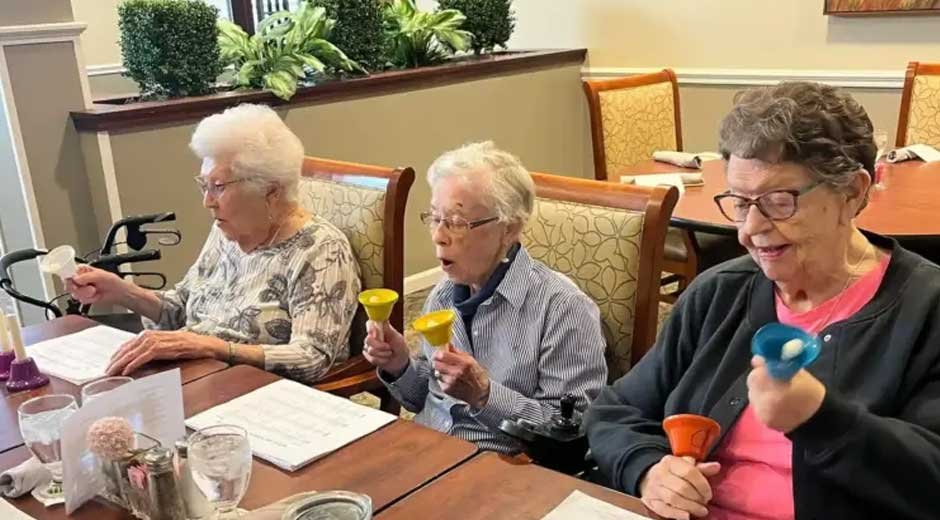As our loved ones age, navigating the complex landscape of senior care becomes increasingly important. Understanding the various options available can help families make informed decisions that best support their elderly relatives’ health, comfort, and quality of life. This comprehensive guide explores five critical senior care options that can help seniors maintain their independence, receive necessary medical support, and enjoy meaningful social connections.
Home Care Services
Home care services have become an increasingly popular option for seniors who wish to remain in the familiar and comfortable environment of their own homes. An establishment for home care in Katy, TX, called Always Best Care, states, “Aging in place allows seniors to maintain their independence while receiving personalized care tailored to their specific needs.” These services can range from occasional assistance with daily tasks like cooking and cleaning to more comprehensive medical care and round-the-clock support.
Professional caregivers can help seniors with mobility challenges, medication management, personal hygiene, meal preparation, and companionship. This option is particularly beneficial for seniors who are relatively healthy but require some additional support to continue living independently. Home care services can be flexible, allowing families to adjust the level of care as their loved one’s needs change over time. Moreover, staying in a familiar environment can provide significant psychological benefits, helping seniors maintain a sense of dignity and control over their lives.
Assisted Living Facilities
Assisted living facilities offer a middle ground between complete independence and full-time medical care. These communities provide seniors with private apartments or rooms while offering comprehensive support services. Residents typically have access to meals, housekeeping, transportation, social activities, and personal care assistance.
These facilities are designed to create a balanced environment that promotes independence while ensuring safety and social engagement. Trained staff members are available 24/7 to help with daily activities such as bathing, dressing, and medication management. Many assisted living communities also offer structured social programs, including group outings, fitness classes, educational workshops, and entertainment, which help combat isolation and promote mental and emotional well-being.
When researching assisted living options, it’s also worth considering nearby healthcare services, including dental care. Older adults often face challenges like tooth loss, which can impact nutrition and quality of life. If dental restoration is needed, a quick online search using a term like “single tooth implants Winnipeg MB” or “dental restoration services near me” can help families find qualified local providers who specialise in senior dental care.
Nursing Homes
For seniors requiring extensive medical care and round-the-clock supervision, nursing homes provide a comprehensive healthcare solution. These facilities are staffed with medical professionals, including nurses, doctors, and therapists who can address complex health conditions and provide specialized medical treatment.
Nursing homes are particularly suitable for seniors with chronic illnesses, mobility issues, or those recovering from surgeries or medical procedures. They offer advanced medical monitoring, rehabilitation services, and specialized care for conditions like dementia or Alzheimer’s. While these facilities provide critical medical support, they also focus on maintaining residents’ quality of life through recreational activities, social interactions, and personalized care plans.
Adult Daycare Centers
Adult daycare centers offer a unique solution for seniors who need supervised care during the day while allowing them to continue living at home with family members. These centers provide a structured environment with professional supervision, social activities, and sometimes medical support.
These programs are especially helpful for families where primary caregivers work during the day or need occasional respite. Seniors can participate in group activities, receive nutritious meals, and engage in cognitive and physical stimulation programs. Adult daycare centers can help prevent social isolation, provide mental and physical stimulation, and offer peace of mind for family members concerned about their loved ones’ safety and well-being during the day.
Memory Care Facilities
Specialized memory care facilities are designed specifically for seniors experiencing cognitive decline, such as those with Alzheimer’s disease or other forms of dementia. These facilities offer a secure, structured environment with staff trained to handle the unique challenges associated with memory-related disorders.
Memory care units provide personalized care that focuses on maintaining residents’ dignity, safety, and quality of life. They often feature specialized design elements like secure wandering paths, memory-triggering activities, and environments designed to reduce confusion and anxiety. Trained professionals use specialized techniques to engage residents, help them maintain cognitive function, and provide compassionate support for both the seniors and their families.
Choosing the Right Care Option
Selecting the most appropriate senior care option requires careful consideration of multiple factors. Families should assess their loved one’s physical health, medical needs, personal preferences, financial resources, and emotional well-being. It’s crucial to involve the senior in the decision-making process, listening to their desires and concerns.
Open and honest communication among family members is essential. Consider consulting healthcare professionals, financial advisors, and senior care experts who can provide personalized guidance. Many families find that a combination of care options works best, adapting the approach as their loved one’s needs evolve.
Financial considerations are also critical. Long-term care can be expensive, so explore various funding options, including private insurance, long-term care insurance, veterans’ benefits, and government programs like Medicaid. Some families also develop creative solutions, such as sharing caregiving responsibilities among family members or utilizing a mix of professional and family-provided care.
Conclusion
Navigating senior care options can feel overwhelming, but understanding the available choices empowers families to make informed decisions. Whether choosing home care, assisted living, nursing homes, adult daycare, or memory care facilities, the goal remains the same: providing compassionate, high-quality care that supports seniors’ physical, emotional, and social needs.
Each senior’s journey is unique, and there is no one-size-fits-all solution. By carefully evaluating individual needs, exploring various options, and maintaining open communication, families can find the most appropriate and supportive care environment for their loved ones.






